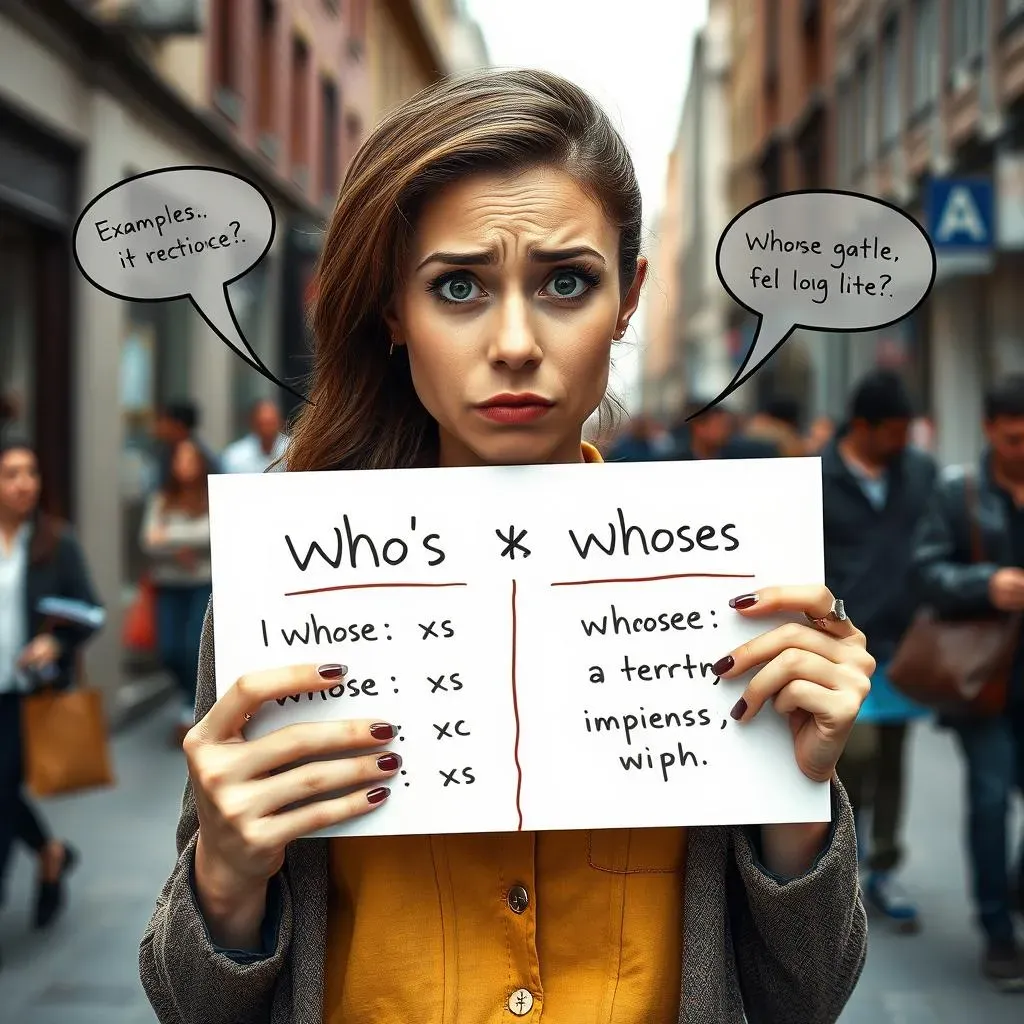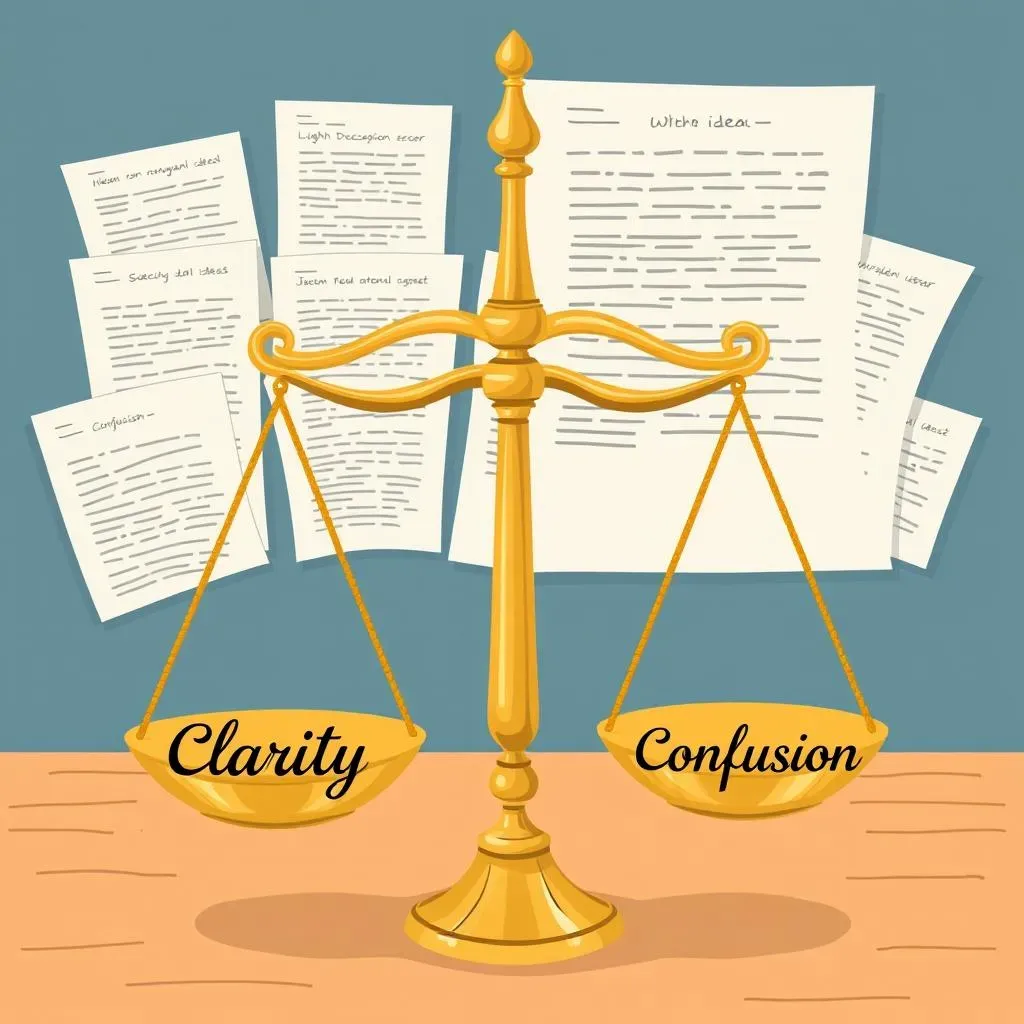Table of Contents
Ever been in a situation where you needed to ask about the origin of a brilliant plan, a quirky suggestion, or maybe even a not-so-great blunder? You probably found yourself wondering, "Whose idea was it?" It sounds simple, right? But when it comes to grammar, things can get a little tangled. Is it "whose" or "who's"? Don't worry, you're not alone if you've ever paused over this. This article will clear up the confusion, breaking down why "whose idea it was" is the correct way to ask about ownership. We'll look at common errors people make, like using "who's" instead, and why getting this right actually matters. Finally, we'll see "whose idea it was" used in real-life situations, so you'll be a pro at using it in no time.
Whose Idea Was It? Understanding the Grammar

Whose Idea Was It? Understanding the Grammar
Let's break down "Whose idea was it?" It's all about possession, like asking "Whose phone is ringing?" "Whose" here is a possessive pronoun, showing that the idea belongs to someone. Think of it like saying "his idea" or "her idea." The sentence structure is straightforward: "Whose" identifies the possessor, "idea" is the thing being possessed, and "was it?" is the question part. It's a direct and clear way to find out who came up with the concept. No need to overcomplicate it with fancy grammar terms right now; just remember "whose" equals belonging.
Common Mistakes: Who's Idea Was That?

Common Mistakes: Who's Idea Was That?
Now, let's talk about where things often go sideways: using "who's" instead of "whose." "Who's" is a contraction, a shortcut for "who is" or "who has." So, saying "Who's idea was that?" is like saying "Who is idea was that?" which doesn't make much sense, does it? It's a super common mix-up, even for native English speakers. Think of it this way: if you can replace the word with "who is" or "who has," then "who's" is the right choice. But if you're asking about possession – like the idea belonging to someone – then it's definitely "whose."
It's easy to see why this happens. They sound exactly the same! Our ears don't pick up the subtle difference in meaning. But in writing, that little apostrophe makes a big difference. It changes the entire meaning of the sentence. Imagine you're asking about a surprise party. "Whose planning this?" makes sense. But "Who's planning this?" is asking "Who is planning this?". See the difference? One is asking for the owner of the plan, the other is asking for the person doing the planning. Tricky, right?
Correct Usage | Incorrect Usage | Explanation |
|---|---|---|
Whose idea was it to order pizza? | Who's idea was it to order pizza? | Asking about the owner of the idea. |
Whose car is parked outside? | Who's car is parked outside? | Asking about the owner of the car. |
Who's going to the party? | Whose going to the party? | Asking "Who is" going to the party. |
Why Getting 'Whose Idea' Right Matters

Why Getting 'Whose Idea' Right Matters
Clarity in Communication
Okay, so you might be thinking, "Does it really matter if I say 'who's' or 'whose'?" And honestly, in a casual chat, most people will probably get what you mean. But when it comes to clear and precise communication, especially in writing, getting it right matters. Using "whose idea" correctly avoids any confusion about whether you're asking about ownership or identity. Think of it like this: you wouldn't want to ask "Who's phone is that?" when you really mean "Whose phone is that?" It just sounds a bit off, right? Clarity prevents misinterpretations and makes your writing look more polished.
Professionalism and Credibility
Imagine you're writing an important email or a report. Using the correct grammar, including knowing when to use "whose idea," shows attention to detail. It signals professionalism and boosts your credibility. People are more likely to take your writing seriously if it's grammatically sound. It's a small thing, but these little details can make a big difference in how your work is perceived. No one wants to be distracted by grammar errors when they're trying to focus on the message itself. Getting "whose idea" right is part of presenting yourself as a competent and careful communicator.
Avoiding Ambiguity in "Whose Idea"
Think about situations where the stakes are higher. In legal documents or formal proposals, precision is key. Using "whose idea" correctly eliminates any ambiguity. For instance, in a meeting, you might ask, "Whose idea was it to implement this new strategy?" This clearly asks for the originator. If you said, "Who's idea was it?", it could be interpreted as "Who is the idea?", which is nonsensical. While context can often help, why leave room for doubt? Getting the possessive form right ensures your meaning is crystal clear, no matter the context. It's about making sure your message lands exactly as you intend it to.
RealWorld Examples: Whose Idea in Action

RealWorld Examples: Whose Idea in Action
Think about everyday situations. At work, when a new project kicks off, someone might ask, "Whose idea was it to try this new marketing strategy?" It's a simple way to give credit where it's due, or maybe just to understand the thinking behind it. Or imagine you're at home, and a delicious smell wafts from the kitchen. You might ask, "Whose idea was it to bake cookies?" hoping for a taste! These are casual, everyday uses. But it pops up in more formal settings too. Picture a town hall meeting where a resident asks, "Whose idea was it to build the new park downtown?" It's about accountability and understanding the decision-making process. Whether it's praising a success or figuring out how a mistake happened, "whose idea was it" is a practical question we use all the time.
